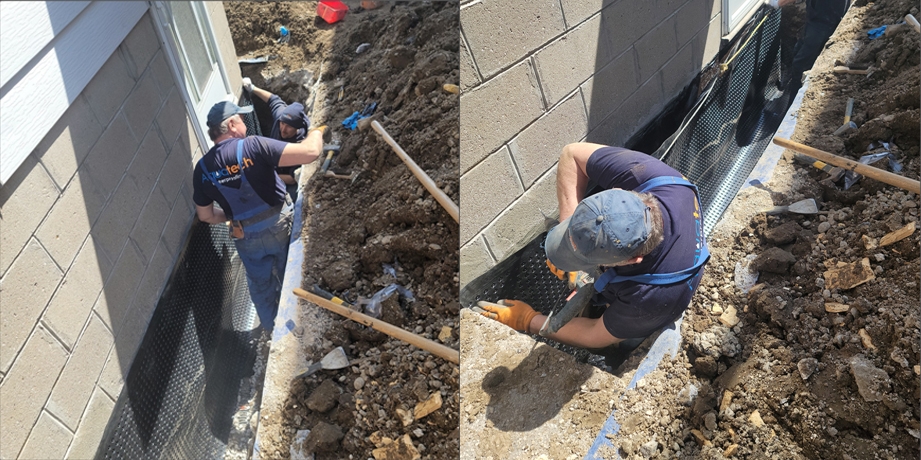
How should you tackle the wet basement problem before it starts?
You move to the basement and turn on the lights to discover water flowing in. It is a challenge that is most likely to occur in the spring, so don't be shocked if it happens in March, April, or May when the weather is the wettest. It can happen in an unfinished basement, but when you have a wet basement with wet carpet, wood, or tile, the cleaning and related challenges are much more severe.
When there is water in a basement, the first step is to determine the cause of the wet basement floor, which will help you prevent it from happening again. It's also crucial to understand how to clean up water in a basement so that no permanent damage occurs.
Reasons for a wet basement:
Wetness in your basement can cause by a variety of factors. The following are the critical reasons for a wet basement:
- Condensation in the ground:
The basement has a much lower temperature than the rest of the building. As a result, cool air can't retain nearly as much moisture as warm air in other spaces. Air from upper rooms condenses on basement walls, and uninsulated pipes run through it as it blends with air from the basement.
- Broken pipes and wall cracks:
Moisture and water are often transported by leaky pipes and holes in the foundation wall. Other causes of dampness include French drains, rain gutters, and sewage overflows.
- Moisture dissolving from the ground:
Moisture from the ground below could slowly rise through the foundation and into your floor and walls if your basement isn't waterproof.
- Water from drained faucets:
Other culprits involve new sinks, showers, and tubs in the basement. Water from their pipes would slowly leak out, creating dampness in the walls.
Do's & Don'ts – Waterproofing basement walls:
- Research various techniques of waterproofing:
Interior sealants, external waterproofing, and drainage are the three principal types of basement waterproofing Toronto. There are different solutions for different problems as each circumstance, house, and basement is unique.
- Don't use DIY sealants:
The most straightforward solutions are often just temporary. If you go to a home improvement store, you'll find a wide variety of waterproofing and sealant options, all claiming to be the best on the market. You'll be deluged with advertisements claiming that this or that product is the best and can cure any leaky basement.
- Do the cleanliness of your gutters:
Who'd have guessed that clogged gutters could result in a flooded basement? Imagine a clogged rain gutter bursting open and pouring all of the water onto your home's base. Keep your gutters free of dirt and leaves so that the water collected will quickly flow to the downspouts and away from your building.
- Don't avoid a leak:
Avoiding a leak is the worst thing you can do for your house, cellar, and home's overall foundation and construction. It may seem small at first, but that small crack or leak will grow more prominent, and you will be dealing with an even more critical problem.
Solutions to fix a wet basement
First and last, you must recognize that a leaking basement can be harmful to you and your family. A wet basement Toronto can cause gas leakage, bacteria transmission if it's connected to sewage, electrical shock, and in some situations, it can also damage walls and structural integrity. How can you deal with such a risky situation?
If you smell gas or detect some potential danger, get your family out of the building. Then, to protect the area and make the necessary repairs, contact a basement waterproofing contractor. Find a contractor who is based in your area and is familiar with the problems you face. Take as much time as you can to read feedback or contact references to ensure your contractor has a track record of success in people in your situation, just as you would for any other service provider.
Conclusion:
A specialist will come to your home and assess the damage before making decisions about how to proceed. A specialist also has the skills and tools necessary to safely manage the situation and ensure that you receive the fastest and most appropriate solutions for your particular situation. A professional will not only know how to dry a wet basement, but they will also be able to provide wet basement protection solutions that will avoid potential problems and long-term harm.








